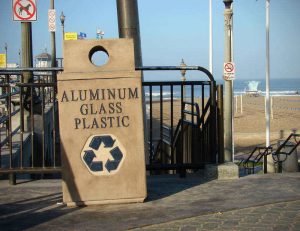 A research paper on individual steps to reduce greenhouse gas emissions has precipitated a host of mainstream media stories, many of which aren’t kind to recycling.
A research paper on individual steps to reduce greenhouse gas emissions has precipitated a host of mainstream media stories, many of which aren’t kind to recycling.
The study, conducted by researchers at the University of British Columbia in Canada and Lund University in Sweden, explored which individual lifestyle choices people can make to reduce their carbon contributions. The resulting paper, published this month, contrasted the most effective choices with government messaging, noting there is often a disconnect.
According to researchers, the most effective decisions are having one less child, living car free, avoiding long flights and eating a plant-based diet. The researchers categorize “comprehensive recycling” as a moderately effective act to reduce individual greenhouse gas emissions. But they say it falls well short of other steps, and they don’t specifically define what “comprehensive recycling” entails.
“Eating a plant-based diet saves about four times more greenhouse gas emissions per year than recycling,” according to a press release from Lund University. “Avoiding just one trans-Atlantic flight saves eight times more, and living car-free saves 11 times more. Similarly, switching from plastic to canvas bags is less than 1 percent as effective for the climate as a year without consuming meat.”
The study also noted that a U.S. family that chooses to have one less child would provide the same level of emissions reductions as 684 teenagers recycling comprehensively for the rest of their lives.
The study did not include an exploration of other environmental or economic benefits of recycling.
Particularly in the British media, the report has led to headlines challenging the value of recycling, including “WASTE OF TIME: Environmental benefits of 20 years worth of recycling are ruined by taking just ONE flight, report finds,” “Cutting a transatlantic flight ‘saves as much carbon as recycling for 20 years’,” and “Recycling Won’t Cut It.”
The Guardian was slightly kinder to the recycling industry in its headline: “Every little recycled yoghurt pot helps-but how best can you help save the planet?”
More stories about data



